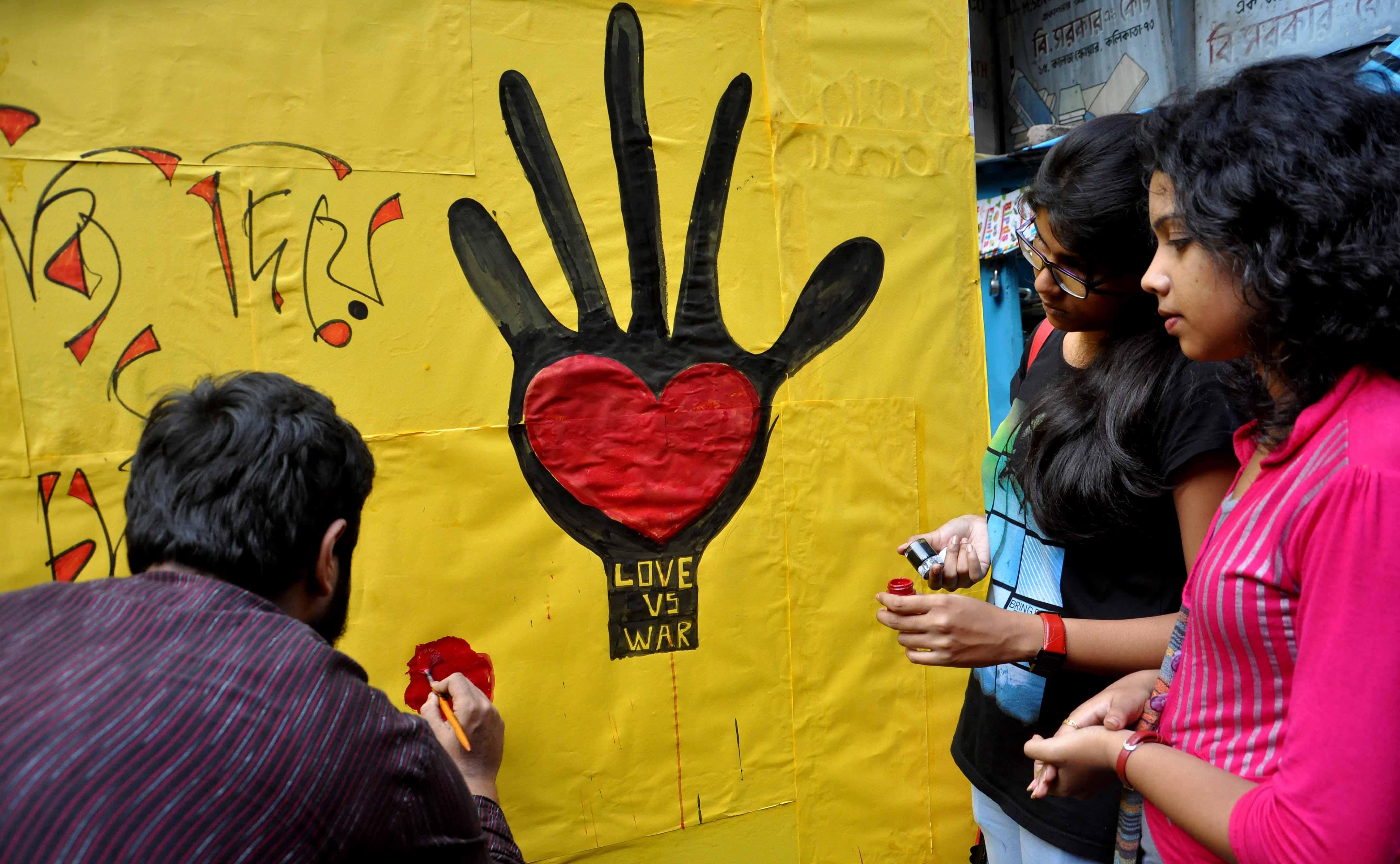Lovers Uniting for the Right to Kiss Arrested

Lovers in Kochi, Kerala united on Sunday at a mass demonstration for the right to be able to kiss in public, only to be met by violence and thousands of arrests by the police. The campaign, “Kiss of Love,” was protesting moral policing of couples expressing their love in public.
The campaign and protest came as a response to the vandalization by Hindu activists of a coffee shop that was popular for lovers to meet and kiss in Kozhikode, Kerala. The Yuva Morcha – the youth wing of the BJP – has been accused of the violence in the coffee shop last week.
Over the past week the Kiss of Love campaign has attracted thousands of followers through social media. The organizers announced a “Kiss Day” event for this Sunday, November 2nd on Marine Drive. The event was advertised to have hundreds of couples and family members hug and kiss “to express the freedom of love.”
The campaign organizers emphasized that the protest extends not only to lovers, but all displays of affection. “We need to open up spaces in the rigid Kerala society to make it tolerant towards expressions of love in public spaces, be it between siblings, or parents with children.”
On the other hand, the Yuva Morcha, the Vishwa Hindu Parishad (VHP), and some Indian Muslim groups outwardly opposed the campaign, stating that it went against Indian culture and religious values. A group of religious activists violently disrupted the event advertising on Marine Drive on Wednesday, tearing up posters and attempting to send the protesters home.
Although the VHP said that it would not interfere in the event on Sunday, it did say that it wouldl “legally challenge” the attempt. Police did not grant permission to the protesters to gather on Marine Drive, and warned beforehand that they would arrest and remove people on the spot if it created a law and order situation.
In order to prevent disruption, the organizers of the event decided to prepone the event by an hour, only to still be met by a strong police contingent on Memorial Drive, along with marchers against the campaign, including supporters of Shiv Sena. The politician outwardly denounced the campaign and activists sympathetic to him decided to stand up against the “immoral activities.” The right-wing Hindu and Muslim activists who were there to disrupt the protest turned violent after a few couples started kissing, leading the police to get involved.
About 50 people, protesters and dissenters alike, were arrested on the spot and later released on bail, including many of the campaign organizers.
As the protest organizers pointed out, romance and love have been a part of Indian culture from centuries, from the mention of kissing in the Mahabaratha to the Mughal emperor’s open portrayals of lust for his harem ladies.
To denounce an action as untraditional within a family is one thing – but to force the understanding of that value onto the community at large with violence is a whole another. As parents, we may teach our children that they should not embrace or kiss in public, and those are part of our values. As community members, we may disagree with the values or actions of others, but we have no right to force them to act a certain way and prescribe to what we see as our culture.
All Indians, religious activists and liberals alike, must remember that there is no prescribed set of rules that guide the culture. Although it may be important for culture to hold onto its traditional values, what these values mean to an individual is up to them to decide, and certainly should not be enforced violently by others.
As protesters and dissenters debate on whether or not moral policing of kissing is necessary to preserve religion and culture, we must consider if the kiss culture and Indian culture are truly so fundamentally in opposition with each other.
[Image Attribute: IANS]




